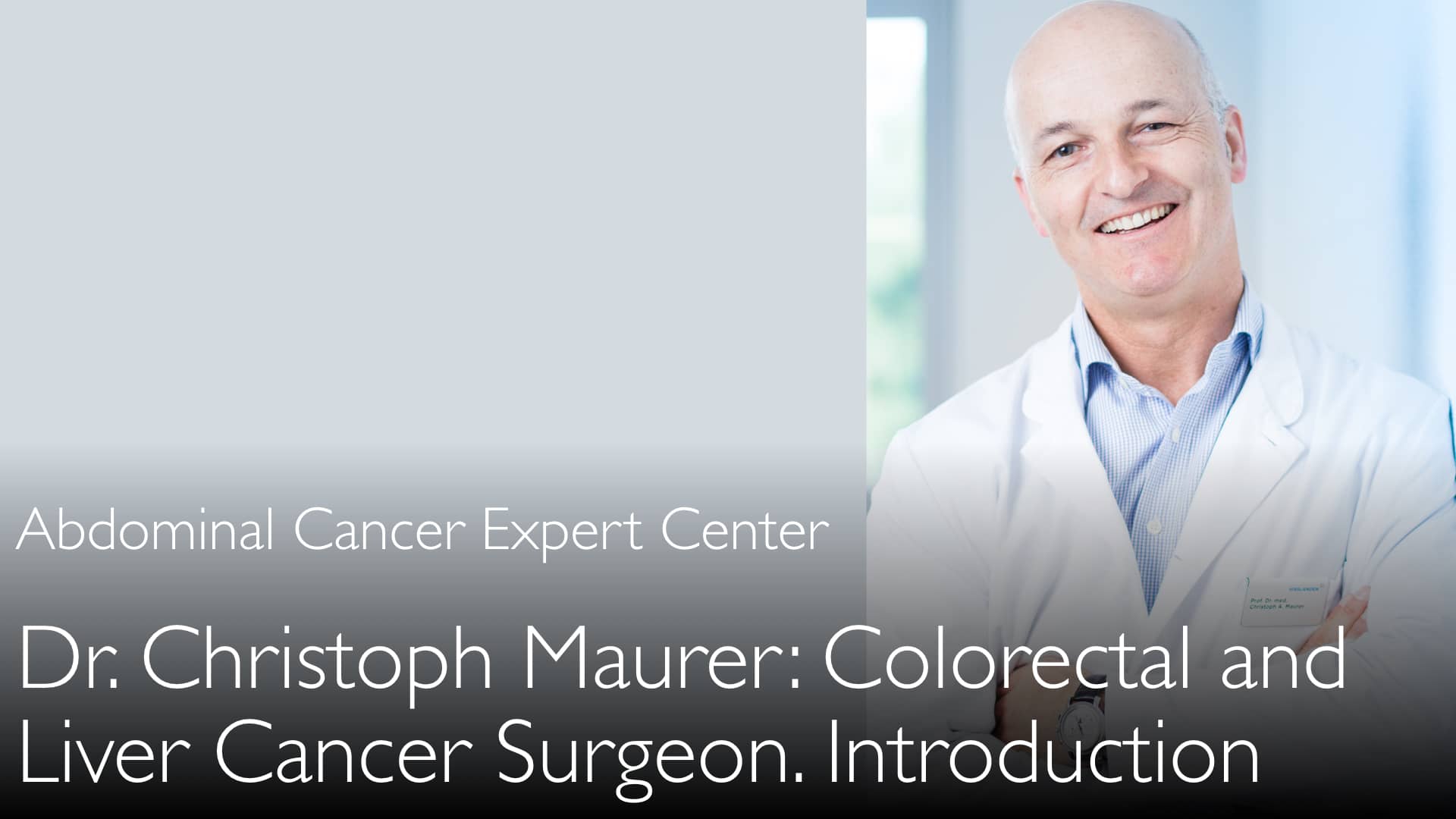מומחה מוביל בניתוחי סרטן המעי הגס, ד"ר כריסטוף מאורר, MD, מסביר מדוע המנתח הוא הגורם הפרוגנוסטי החשוב ביותר להישרדות ארוכת טווח. הוא מפרט כיצד טכניקות ניתוחיות ספציפיות משפיעות ישירות על הישנות הסרטן ותוצאות המטופלים. ד"ר כריסטוף מאורר, MD, מדגיש את החשיבות של שימור המישור האנטומי וניתוח כלי הדם המרכזיים. מנתח איכותי יכול לשפר דרמטית את שיעורי ההישרדות, גם בשלבי מחלה מתקדמים.
כיצד מומחיות כירורגית מגדירה את תוצאות ההישרדות בסרטן המעי הגס
קפיצה לסעיף
- המנתח כגורם פרוגנוסטי מרכזי
- עקרונות אנטומיים בניתוחי סרטן
- השפעת דירוג קשרי הלימפה המדויק
- איכות כירורגית ושיעורי הישרדות
- שיפור תוצאות בסרטן מתקדם
- תמליל מלא
המנתח כגורם פרוגנוסטי מרכזי
ד"ר כריסטוף מאורר, MD, מציין שהמנתח הוא אחד הגורמים הפרוגנוסטיים החשובים ביותר עבור חולי סרטן המעי הגס. זאת משום שהטכניקה הכירורגית משפיעה ישירות על הסיכון להישנות מקומית ולהתפשטות גרורתית. איכות הניתוח יכולה לשנות את שלב המחלה של החולה ואת צרכי הטיפול העתידיים. ד"ר אנטון טיטוב, MD, דן כיצד גורם קריטי זה מוזנח לעתים קרובות על ידי חולים המחפשים טיפול.
עקרונות אנטומיים בניתוחי סרטן
ד"ר כריסטוף מאורר, MD, מסביר שכיבוד המישורים האנטומיים הוא בסיסי לניתוח סרטן מרפא. בסרטן החלחולת, זה כרוך בהסרה מלאה של המזורקטום, רקמת השומן המכילה קשרי לימפה קריטיים. הניתוח חייב להתבצע לאורך המישור האנטומי הנכון, הפציה המזורקטלית, כדי למנוע דליפת גידול. אותו עיקרון חל על סרטן המעי הגס, שם יש להסיר את המזוקולון בשלמותו מבות לפתוח אותו במהלך הניתוח.
השפעת דירוג קשרי הלימפה המדויק
טכניקה כירורגית מדויקת מאפשרת דירוג תוך-ניתוחי מדויק של קשרי הלימפה. ד"ר כריסטוף מאורר, MD, מציין שזה יכול לגרום לעלייה בשלב המחלה ב-15 עד 30% מהחולים. מעבר חולה משלב 2 לשלב 3 בסרטן המעי הגס משמעו שהוא יזדקק לכימותרפיה משלימה. דיוק דירוג זה תלוי entirely במיומנות המנתח בביצוע לימפאדנקטומיה רדיקלית ומלאה.
איכות כירורגית ושיעורי הישרדות
שיטת כריתת סרטן המעי הגס משפיעה profoundly על הישרדות ארוכת טווח. ד"ר כריסטוף מאורר, MD, מדגיש שטכניקות כירורגיות נחותות מסוימות יכולות להפחית את תוחלת ההישרדות ל-5 שנים עד 40%. ניתוח מרכזי של כלי הדם הוא חיוני, שכן קשרי הלימפה עוקבים אחר אספקת העורקים. עבור סרטן מעי גס ימני, זה משמעו ניתוח עורק האילאוקוליק במקורו על עורק המזנטריק העליון כדי להבטיח הסרה רדיקלית.
שיפור תוצאות בסרטן מתקדם
מנתח סרטן מיומן מאוד יכול להשיג תוצאות remarkable גם במחלה מתקדמת. ד"ר כריסטוף מאורר, MD, מציין שמנתח טוב יכול לתת לחולי סרטן מעי גס שלב 3 כמעט את אותה הישרדות ארוכת טווח כמו חולי שלב 2. זה מושג על ידי הסרה מלאה של כל התפשטות הסרטן הלימפתית המקומית והאזורית. ד"ר אנטון טיטוב, MD, וד"ר מאורר מסכימים שעיקרון כירורגי זה של כריתה מלאה חשוב יותר מכל כימותרפיה נוספת לשיפור הישרדות בסרטן המעי הגס.
תמליל מלא
המנתח הוא הגורם הפרוגנוסטי החשוב ביותר בטיפול בסרטן. כיצד לבחור את המנתח הטוב ביותר? מה צריך המנתח הטוב ביותר לדעת עבור טיפול בסרטן? חולים sometimes מפספסים גורם פרוגנוסטי קריטי זה בטיפולם.
ד"ר אנטון טיטוב, MD: אפשרויות הניתוח הטובות ביותר לסרטן המעי הגס. אתה כותב באחת הסקרות שלך: "המנתח הוא אחד הגורמים הפרוגנוסטיים החשובים ביותר עבור חולי סרטן המעי הגס." "דירוג תוך-ניתוחי מדויק של קשרי הלימפה עשוי לגרום לעלייה בשלב המחלה ב-15 עד 30% מהחולים." מעבר חולה משלב 2 לשלב 3 בסרטן המעי הגס משמעו שהחולה יזדקק לכימותרפיה משלימה.
אתה גם כותב שטכניקות כריתת סרטן מעי גס מסוימות יכולות actually להחמיר את הפרוגנוזה להישרדות בסרטן המעי הגס. שיטות ניתוח מסוימות לסרטן המעי הגס יכולות להפחית את תוחלת ההישרדות ל-5 שנים בחולי סרטן מעי גס עד 40%. מדוע המנתח הוא הגורם הפרוגנוסטי החשוב ביותר עבור חולי סרטן המעי הגס? כיצד איכות המנתח וסוג הניתוח משפיעים על הישרדות ארוכת טווח של חולי סרטן המעי הגס?
ד"ר כריסטוף מאורר, MD: כן, אז בואו נתחיל עם הדוגמה של סרטן החלחולת. לפני עשרים שנה мы surgeons למדנו שהמזורקטום absolutely crucial להסרה במהלך ניתוח סרטן החלחולת. המזורקטום הוא רקמת השומן המקיפה את החלחולת. because within רקמה זו יש לנו את קשרי הלימפה.
We have to respect את המישורים האנטומיים של הרקמה. We have to respect את הפציה המזורקטלית. And we have to dissect notורך המישור הקדוש הזה של ניתוח סרטן החלחולת. The same is true עבור סרטן המעי הגס. We have to respect את המישורים האנטומיים של המזוקולון במהלך הסרת סרטן המעי הגס.
We have to leave intact שני צדי המזוקולון. We have to avoid פתיחת המזוקולון during surgical operation. Because otherwise אנחנו מסתכנים בפתיחת גם כלי הלימפה וקשרי הלימפה. This will result in דליפת גידול סרטן המעי הגס או החלחולת.
We have to do absolutely ניתוח מרכזי של כלי הדם. Because notורך כל גוף האדם כל קשרי הלימפה וכלי הלימפה עוקבים after the arteries. So if you want to be radical with regard to התפשטות לימפתית של סרטן המעי הגס, we have to do ניתוח מרכזי של העורקים.
That means עבור סרטן מעי גס ימני, we have to dissect את עורק האילאוקוליק. We have to dissect it completely centrally ברמת עורק המזנטריק העליון. The third thing is about איכות ניתוח הסרטן. We have to do כריתה en bloc. We have to avoid פתיחת הגידול.
ד"ר אנטון טיטוב, MD: Previously שוחחנו עם מנתח החלחולת השוודי הבולט, ד"ר טורביורן הולם. We discussed את החשיבות של הידע בטכניקות ניתוח הסרטן הטובות ביותר הנוכחיות so that חולי סרטן החלחולת ייהנו משיעורי ההישרדות הטובים ביותר. So it's very similar, in that sense, עבור טכניקות ניתוח סרטן המעי הגס too.
ד"ר כריסטוף מאורר, MD: Exactly, exactly. מנתח סרטן טוב even בשלב 3 סרטן המעי הגס משיג almost the same הישרדות ארוכת טווח כמו בחולי שלב 2 סרטן המעי הגס. שלב 3 סרטן המעי הגס means שלסרטן יש מעורבות של קשרי הלימפה. שלב 2 סרטן המעי הגס means שאין מעורבות של קשרי הלימפה.
מנתח טוב משפר הישרדות בסרטן מעי גס שלב 3 because המנתח מסוגל להסיר all התפשטות סרטן לימפתית מקומית ואזורית. עיקרון כירורגי זה של הסרה מלאה של קשרי הלימפה חשוב יותר מכל כימותרפיה נוספת לסרטן המעי הגס.
So it's worthwhile לאמץ קונספט מובנה זה לביצוע כריתת סרטן מעי גס locoregional באופן רדיקלי.





